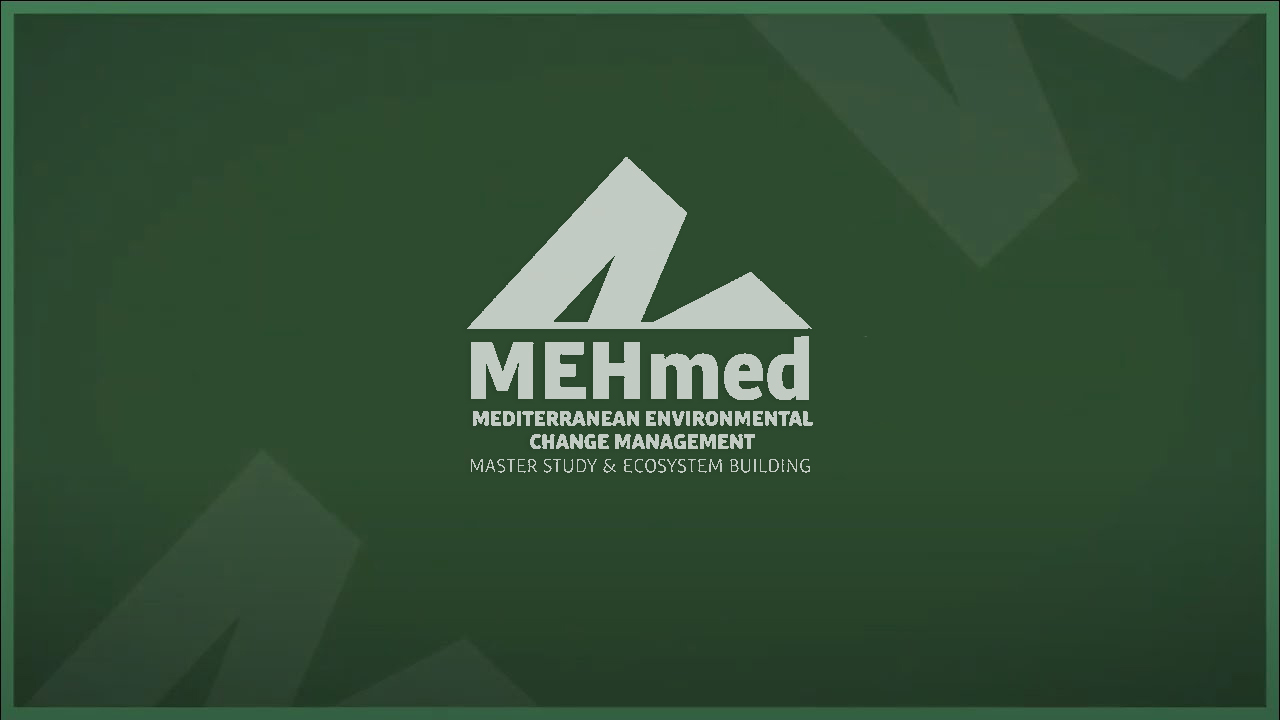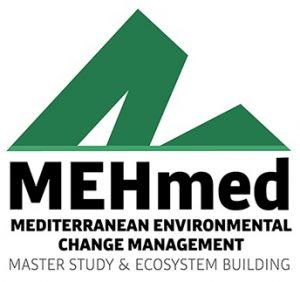MEHmed Project 2018-2021

 |
 |
|
Mediterranean Environmental Change Management Master Study and Ecosystem (MEHMED) |
|
|
|
Presentation
The Mediterranean basin is famous for its natural diversity, but also an area with pressing environmental problems. Countries on its southern shore are particularly vulnerable to these issues, since their socioeconomic reality is full of difficulties directly connected to their environment: Apart from general issues such as waste management, water and air pollution and their effects on the population’s health, these countries face severe challenges through desertification, deforestation and threats to biodiversity caused directly by environmental change and with severe implications for their economies, especially regarding agriculture and the tourism sector.Consequently, strategic environmental change management will be crucial to seize socioeconomic opportunities linked to environmental change and minimize its risk. Therefore, the wider objective of this project is to enable Algerian, Moroccan and Tunisian HEIs to develop and implement a new master’s curriculum in the field of Mediterranean Environmental Change Management. Master Study and Ecosystem Building (MEHMED) aligned with the EU Bologna educational approach (duration of 1,5 year, 90 ECTS).To this end, EU HEIs will transfer their knowledge and experience from related degrees to the Partner Country HEIs and participate in the joint development of a new curriculum in accordance with EU and international standards and labour-market requirements to prepare students to apply their knowledge, skills and competences in the field of environment and sustainable development. The new master will assume an interdisciplinary approach, through the collaboration of various faculties and by involving graduate students from different academic fields. MEHMED will be developed in collaboration with various Algerian, Moroccan and Tunisian public and private stakeholders in the environmental sector, and include an internship module thematically linked to the students’ master’s theses to improve alumni’s employability.
